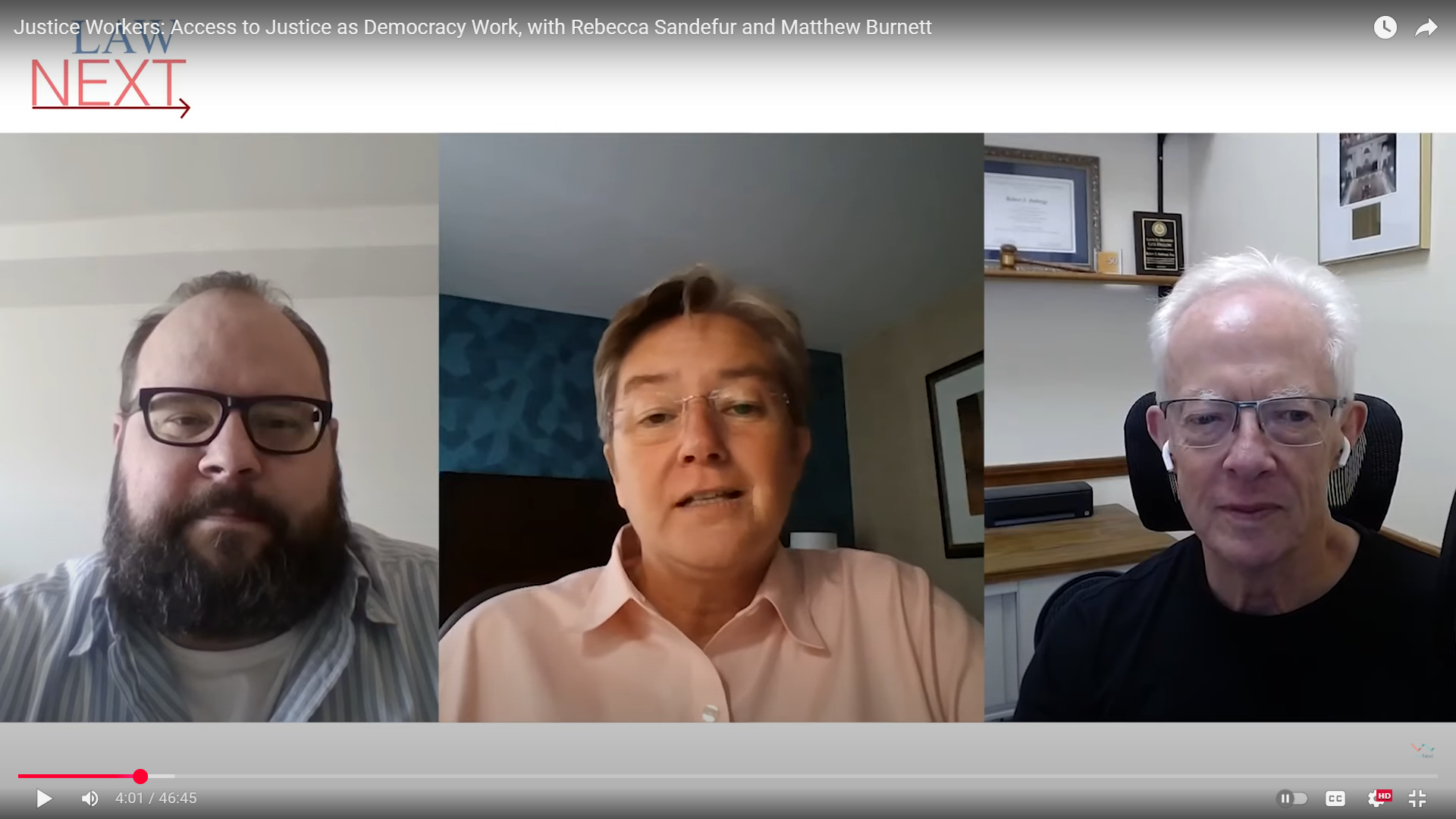With as many as 120 million legal problems going unresolved in America each year, traditional lawyer-centered approaches to access to justice have consistently failed to meet the scale of need. But what if the solution is not just about providing more legal services — what if it lies in fundamentally rethinking who can provide legal help?
In today’s episode, host Bob Ambrogi is joined by two of the nation’s leading researchers on access to justice: Rebecca Sandefur, professor and director of the Sanford School of Social and Family Dynamics at Arizona State University and a faculty fellow at the American Bar Foundation, and Matthew Burnett, director of research and programs for the Access to Justice Research Initiative at the American Bar Foundation and an adjunct professor of law at Georgetown University Law Center.
They argue that the access to justice crisis is actually a crisis of democracy. As cofounders of Frontline Justice, they have been pioneering research on “justice workers” — community members trained to help their neighbors navigate legal issues. Their recent article in the South Carolina Law Review, “Justice Work as Democracy Work: Reimagining Access to Justice as Democratization,” makes a provocative case: When people cannot access their own law, democracy itself fails. They present compelling evidence from Alaska, where nearly 200 community justice workers now serve over 40 rural communities, achieving a 1-to-25 return on investment while dramatically expanding legal aid’s reach.
In today’s conversation, Sandefur and Burnett discuss the mounting evidence for justice worker effectiveness, including research from the U.K. demonstrating that trained non-lawyers often outperform attorneys on specialized tasks. They also discuss recent breakthroughs — including unprecedented support from both the Conference of Chief Justices and the American Bar Association — and examine what obstacles remain.
Sandefur and Burnett challenge the legal profession’s monopoly on law, arguing that regulatory capture has estranged Americans from their own justice system. They envision justice workers as agents of democratization, expanding not just who can access legal help, but who can participate meaningfully in working democracy.
Listen here:
Watch here:
Related episodes:
Thank You To Our Sponsors
This episode of LawNext is generously made possible by our sponsors. We appreciate their support and hope you will check them out.
-
Paradigm, home to the practice management platforms PracticePanther, Bill4Time, MerusCase and LollyLaw; the e-payments platform Headnote; and the legal accounting software TrustBooks.
-
Briefpoint, eliminating routine discovery response and request drafting tasks so you can focus on drafting what matters (or just make it home for dinner).
-
Paxton, Rapidly conduct research, accelerate drafting, and analyze documents with Paxton. What do you need to get done today?
If you enjoy listening to LawNext, please leave us a review wherever you listen to podcasts.
 Robert Ambrogi Blog
Robert Ambrogi Blog